Are you searching for Political Science jobs in Malawi? Ntchito.com is your premier destination for the most current and active positions within Malawi’s vibrant political and public policy sectors. Whether you’re interested in roles within government agencies, research institutions, non-governmental organizations (NGOs), international organizations, or think tanks in major cities like Lilongwe and Blantyre, our platform connects you with leading employers seeking skilled political science professionals. Advance your career by exploring diverse opportunities in policy analysis, legislative assistance, political research, advocacy, and more within Malawi’s dynamic political landscape. Additionally, enhance your expertise with Courses & Trainings (Funded) and gain practical experience through Internship Opportunities.
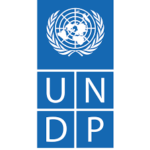
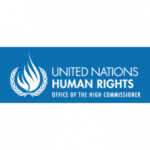


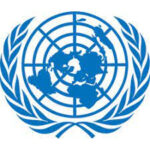


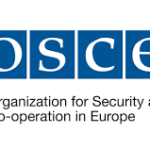






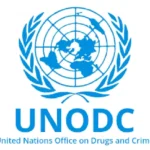


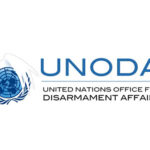




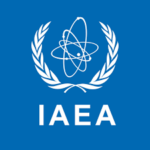
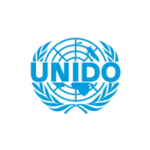



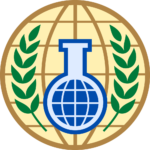














FAQs for Political Science Jobs in Malawi
What educational qualifications are required for Political Science positions in Malawi?
Political Science roles in Malawi typically require a strong educational foundation in relevant disciplines. Candidates should possess at least a bachelor’s degree in Political Science, Public Administration, International Relations, Public Policy, or a related field from an accredited institution. For advanced positions, such as Policy Analysts, Research Directors, or Political Advisors, a master’s degree or specialized certifications may be necessary. Additionally, holding certifications from recognized institutions or professional bodies can significantly enhance a candidate’s qualifications and competitiveness in the job market. For those seeking further education, explore Bachelors Scholarship and Masters Scholarship opportunities to support your academic advancement.
Beyond formal education, practical experience is highly valued. Employers seek individuals with hands-on experience through internships, volunteer work, or previous employment in governmental bodies, NGOs, research institutions, or political campaigns. Participation in Internship Opportunities can significantly strengthen your application by providing real-world experience and networking opportunities within the political science sector. Continuous professional development through Courses & Trainings (Funded) is also recommended to stay updated with the latest political theories, policy analysis techniques, and governance practices.
How is the demand for Political Science professionals evolving in Malawi’s public and private sectors?
The demand for Political Science professionals in Malawi is steadily increasing, driven by ongoing political developments, public sector reforms, and the expansion of international collaborations. As Malawi continues to strengthen its governance structures and implement policy reforms, the need for skilled professionals in areas such as policy analysis, legislative support, and political research grows correspondingly. This trend is further fueled by the rise of NGOs and international organizations focused on governance, human rights, and development projects that require robust political analysis and advocacy skills.
In addition to traditional governmental roles, there is a growing demand for Political Science professionals in the private sector, particularly in areas related to corporate social responsibility (CSR), public affairs, and strategic consulting. The integration of political insights into business strategies is becoming increasingly important for companies operating in Malawi and the broader region. Staying informed about these industry trends through resources like Job in Malawi and Consultancy Projects can help candidates identify emerging opportunities and align their skills with market demands. Furthermore, the increasing focus on digital governance and e-governance initiatives is creating new avenues for Political Science professionals with expertise in technology and public policy.
What key skills and competencies are essential for success in Political Science roles in Malawi?
Success in Political Science roles in Malawi requires a blend of technical expertise and soft skills. Key technical skills include proficiency in policy analysis, legislative research, and data analysis. Candidates should be adept at using analytical tools and software to assess policy impacts, conduct political research, and compile comprehensive reports. A strong understanding of Malawian political systems, governance structures, and legal frameworks is essential for navigating and influencing public policy effectively.
On the soft skills front, employers value excellent communication and interpersonal abilities, as Political Science professionals often interact with diverse stakeholders, including government officials, community leaders, and international partners. Critical thinking and problem-solving skills are crucial for developing innovative policy solutions and addressing complex political challenges. Additionally, project management and organizational skills are important for handling multiple projects and ensuring timely completion of tasks. Enhancing these skills through Courses & Trainings (Funded) and Soft Skills Training can make candidates more attractive to potential employers and facilitate career advancement.
How can Political Science professionals in Malawi advance their careers and stay competitive in the job market?
Career advancement for Political Science professionals in Malawi involves a strategic combination of education, skill development, and networking. Pursuing advanced degrees or specialized certifications in areas such as Public Policy, International Relations, or Political Consultancy can open doors to higher-level positions and specialized roles within the public and private sectors. Engaging in continuous learning through Training Opportunities helps professionals stay updated with the latest political theories, policy analysis techniques, and governance practices.
Networking is another critical component for career growth. Building connections with industry peers, attending political conferences, and participating in professional associations can provide valuable insights and job leads. Additionally, gaining experience in diverse roles within political science, such as working in different governmental departments, international organizations, or research institutions, can enhance a professional’s versatility and marketability. Utilizing resources like Consultancy Projects and Internship Opportunities can also provide practical experience and facilitate transitions into more advanced roles. Furthermore, developing a strong personal brand and leveraging online platforms, such as LinkedIn, can increase visibility and attract potential employers.
What are the common challenges faced by Political Science professionals in Malawi, and how can they overcome them?
Political Science professionals in Malawi often encounter challenges such as limited access to comprehensive data, bureaucratic hurdles, and the complexities of influencing public policy in a dynamic political environment. Limited access to accurate and timely data can hinder effective policy analysis and decision-making, making it essential for professionals to develop strong research and data management skills. Bureaucratic hurdles, including lengthy administrative processes and regulatory compliance requirements, can impede the timely implementation of policies and projects.
To overcome these challenges, Political Science professionals can seek out continuous education and training to enhance their research methodologies, data analysis capabilities, and understanding of governance processes. Engaging in Courses & Trainings (Funded) can provide access to the latest tools and techniques in policy analysis and political research. Building a strong professional network through Networking Strategies for Job Seekers can offer support, resources, and collaborative opportunities to address data and bureaucratic limitations. Additionally, leveraging technology and digital tools for data collection, analysis, and reporting can improve efficiency and effectiveness in policy development and evaluation. Advocating for better data infrastructure and fostering collaborations with research institutions and international partners can also contribute to overcoming these challenges and enhancing the overall impact of Political Science professionals in Malawi’s development sectors.